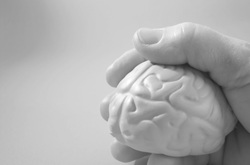
It is important for both therapist and client to think about what it means to end therapy: has the patient's goals been met? Is the ending premature? Is the client ready to continue to work on these things by them self? Does the client need to put into practice what has been learnt in therapy? Is therapy ending because of difficult feelings between the patient and therapist? Does ending mean that important material is being avoided?
These are just a few questions that may come up when thinking about ending therapy. Most psychological difficulties will never fully be resolved and the patient may continue to work on and process things long after therapy has ended. The ultimate goal of therapy thus may be for the client to be able to become their own therapist. There are numerous factors that may equip and ready an individual to be open enough to their psyche, relationships and world to be able to continue the work of therapy. The following article provides a thought-provoking exploration of what the characteristics of a person that may be ready to end therapy are: http://www.psychologytomorrowmagazine.com/the-talking-cure-are-we-there-yet/










 RSS Feed
RSS Feed